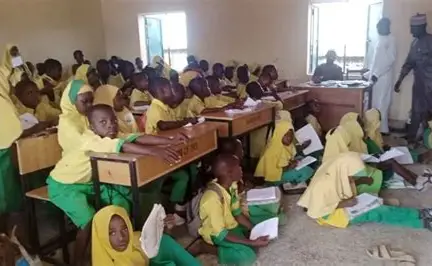Herein this article, we discussed the education crisis: how can Nigeria fix it’s failing public schools? the state of public education in Nigeria, what’s causing the crisis? how can Nigeria fix its public schools? A crisis with a solution.
Nigeria, often called the “Giant of Africa,” is facing a silent but deeply damaging crisis: the steady decline of its public education system. In a nation brimming with youthful energy and potential—over 60% of the population is under 25—the failure of public schools threatens not only individual futures but the country’s socioeconomic stability.
From dilapidated classrooms to chronic teacher shortages, the challenges are widespread and deep-rooted. But if Nigeria can summon the political will, strategic thinking, and public-private partnerships needed, the crisis is fixable. Here’s a breakdown of what’s wrong—and how the system can be rebuilt.
The State of Public Education in Nigeria
Public schools in Nigeria, especially in rural areas, are often underfunded, understaffed, and overcrowded. Students are forced to learn in broken classrooms without chairs, windows, or even chalkboards. In many schools, the student-to-teacher ratio exceeds 100:1, making effective learning nearly impossible.
Even more troubling is the learning outcome: millions of Nigerian children attend school but do not acquire basic literacy and numeracy skills. According to UNICEF, more than 10 million Nigerian children are out of school—the highest in the world.
What’s Causing the Crisis?
Several systemic issues have brought public education to its knees:
. Chronic underfunding: Nigeria has consistently failed to meet the UNESCO recommendation of allocating at least 15–20% of its national budget to education.
. Corruption and mismanagement: Funds meant for education often vanish before reaching the classroom.
. Low teacher morale and poor training: Teachers are poorly paid, poorly trained, and rarely incentivized to improve.
. Outdated curriculum: The curriculum often does not prepare students for modern job markets or technological realities.
. Insecurity: In regions like the North-East, schools are targets of violence, further reducing access to education.
How Can Nigeria Fix Its Public Schools?
Solving Nigeria’s education crisis requires a bold, multi-pronged approach. Here are some concrete steps:
- Increase Education Funding—and Track It Transparently
Allocating a higher percentage of the national budget to education is non-negotiable. But beyond the numbers, transparency is key. Public spending should be trackable, and budget implementation must be monitored in real-time to reduce leakages and corruption.
- Invest in Teachers
Quality education starts with quality teachers. Nigeria needs to:
. Improve teacher salaries and working conditions.
. Standardize and upgrade teacher training programs.
. Provide ongoing professional development and accountability systems.
- Modernize Infrastructure
Schools need safe buildings, reliable electricity, clean water, and basic classroom materials. Investing in digital infrastructure—especially in remote areas—can bridge learning gaps and bring modern education to underserved populations.
- Revamp the Curriculum
A 21st-century Nigeria needs a 21st-century curriculum. This means embedding:
. Critical thinking and problem-solving.
. Digital literacy.
. Vocational and technical education.
. Civic education and ethics.
- Leverage Technology
EdTech solutions can supplement learning, especially where teachers are scarce. Mobile-based platforms, radio lessons, and digital classrooms can expand access and engagement—if supported with proper infrastructure.
- Promote Public-Private Partnerships
Private organizations and NGOs have stepped in where government support has failed. Formalizing partnerships can lead to scalable models in teacher training, curriculum development, and school management.
- Empower Local Communities
Education must be locally owned. When parents, community leaders, and local governments are involved in school management, accountability and performance improve.
A Crisis with a Solution
Fixing Nigeria’s failing public schools will not be easy—but it is possible. With its vast human and natural resources, Nigeria has the tools it needs. What’s required is political will, focused leadership, and collective commitment from all sectors of society.
Education is not just a sector; it’s the foundation of national development. The future of Nigeria depends on what happens in its classrooms today. The question now is: will Nigeria rise to the challenge?


